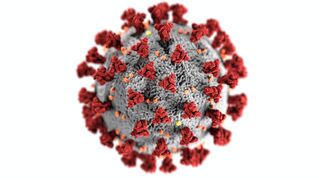Sleep
COVID Found Me
Personal Perspective: After over two years, I got the virus.
Posted August 26, 2022 Reviewed by Ekua Hagan

I am a generally healthy person, but for COVID, I was in the age-risk category, so I took the pandemic very seriously. Being careful and getting every dose of the vaccine I was eligible for as early as possible was my game plan.
It worked for years. But I, like so many of us, started to slowly live life like I did pre-pandemic. It was small things, like running in to pick up a package from my mailbox and forgetting to put on a mask. But there was only one person in there more than six feet away, odds were likely that I was fine, and I was. I still was one of the few people masked in the grocery store, but sometimes I only wore a cloth mask, not an N95. I had a drawer full of them and the waste of the disposable masks was getting to me, so I figured I was still masked and that was good enough. And it was.
What I struggled with was the existential threat of COVID. I am a trained social worker, and I knew there would be psychological challenges, but I had never faced my mortality so closely and for so long. I was not alone. I had many conversations with friends and family members about how scary it was to think we could essentially catch a cold and die from it. Millions of people had died; it was real. I used every tool I had to ease the anxiety, but it was never easy and I often could not ward off the doom.
The big event was my niece’s return home after traveling. She lives with me while in school. Before entering the house, my niece took the COVID home test and she was negative. We had done this before. We were set, all was well. The next day we ran errands together, had a nice dinner at home, and then she felt off physically. She had been traveling, it was to be expected. She went to sleep early. By the time I awoke, she had texted me from her side of the house—she had tested in the middle of the night and it was positive.
What I had feared was now real. Life plans shifted, and I went into action mode taking care of my niece while she stayed quarantined away from me. All the stories I had heard and instructions I read scripted my days—masking when I left a tray with food outside her door, communicating by text and cell phone, washing hands constantly. I was also extra sure to get my sleep and try to stay calm.
At first, I tested, alarmed with every tiny ache or pain. Negative; I was okay. After the first couple of days, I decided to only test if I had actual symptoms. I waited and was surprised that the fear I had felt since the winter of 2020 was not present. I was focused on tasks and not consumed by the existential threat that has haunted me and exhausted me for years. Also, I believed science was on my side and that the vaccine would work.
On the fourth night, I awoke and was chilled. In the heat of summer that sometimes happens when the AC comes on and I have kicked off all the covers. But this felt different. I also felt achy. I was pretty sure I had COVID. But something odd happened. I decided not to get up and test. What would it matter at 1 a.m.? Instead, I decided to go back to sleep to be sure I could get as much rest as possible. I would test in the morning.
Indeed, in the morning I tested positive and had all the classic symptoms. COVID had found me, and now what I feared was real. How was it going to affect me, both physically and mentally? Good friends who live across the country and had been extremely vigilant for years had gotten it a few weeks before, and I was surprised (and reassured) by how calm they were and although sick, they had fully recovered. I found that calmness too, and it surprised me.
I am two weeks post-onset and have tested negative. I still have some congestion and get tired as the day progresses, but I am well. Most important is that after more than two years of high anxiety and worrying, I am alive. I credit the miracle of medical science, a vaccine that was created in record time that has proven to be safe and effective. I am lucky to live now, not 100 hundred years ago when there were no vaccines, or even 10 years ago when science had yet to be able to produce an effective vaccine so quickly.
Most of all I am grateful and relieved. And I feel fortunate that the anticipation and fear were more than the actual event. Life does not always work that way, but often it does. Living through anticipatory dread is often worse than the real event. I hope I can remember that too.


